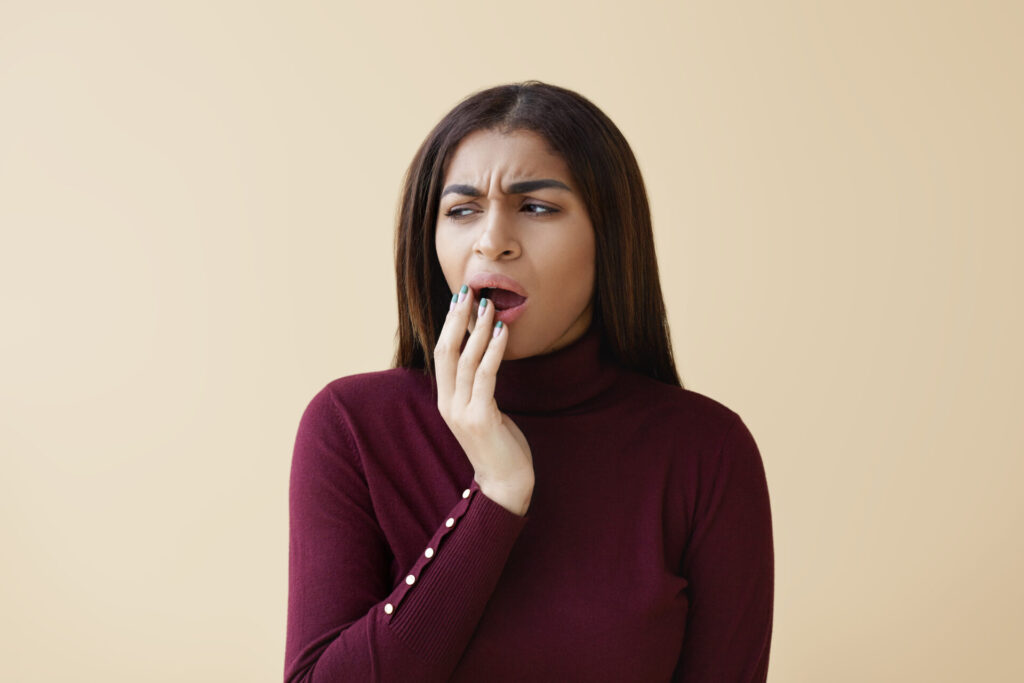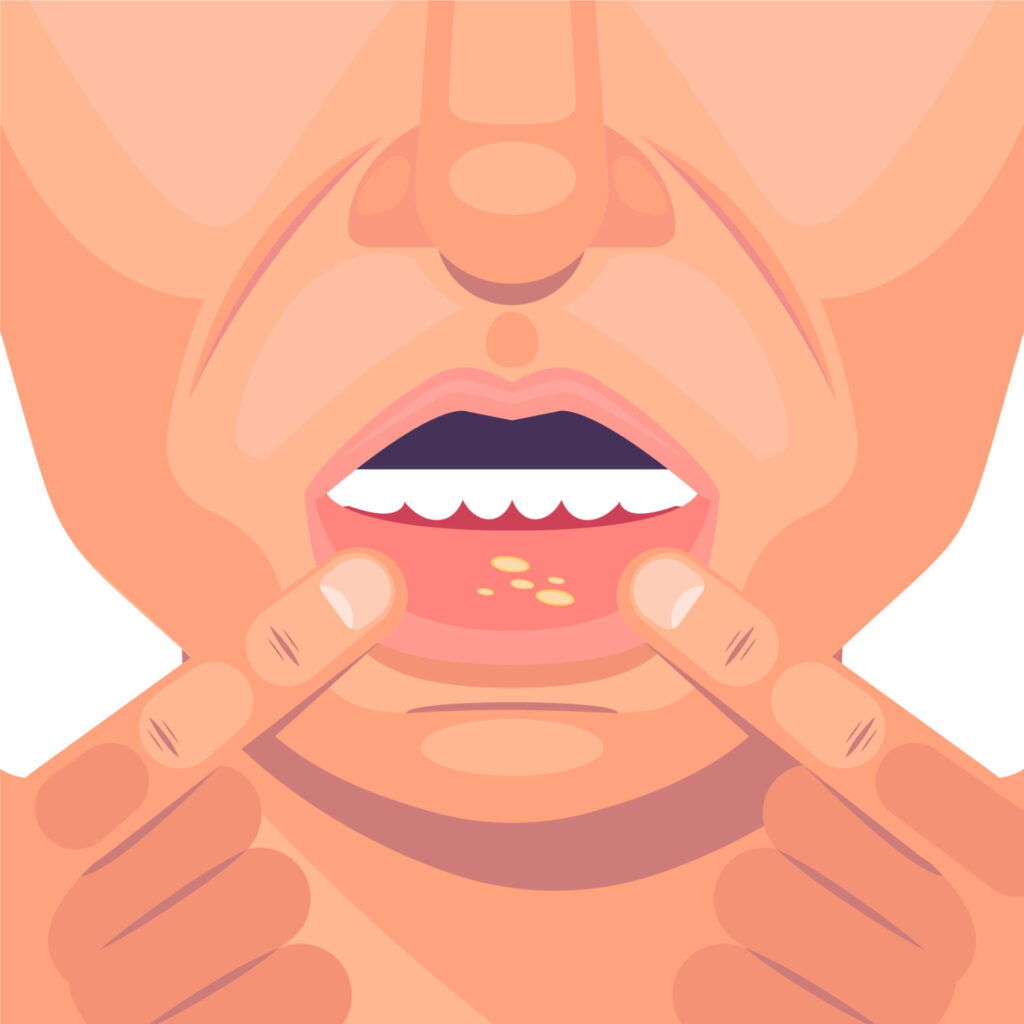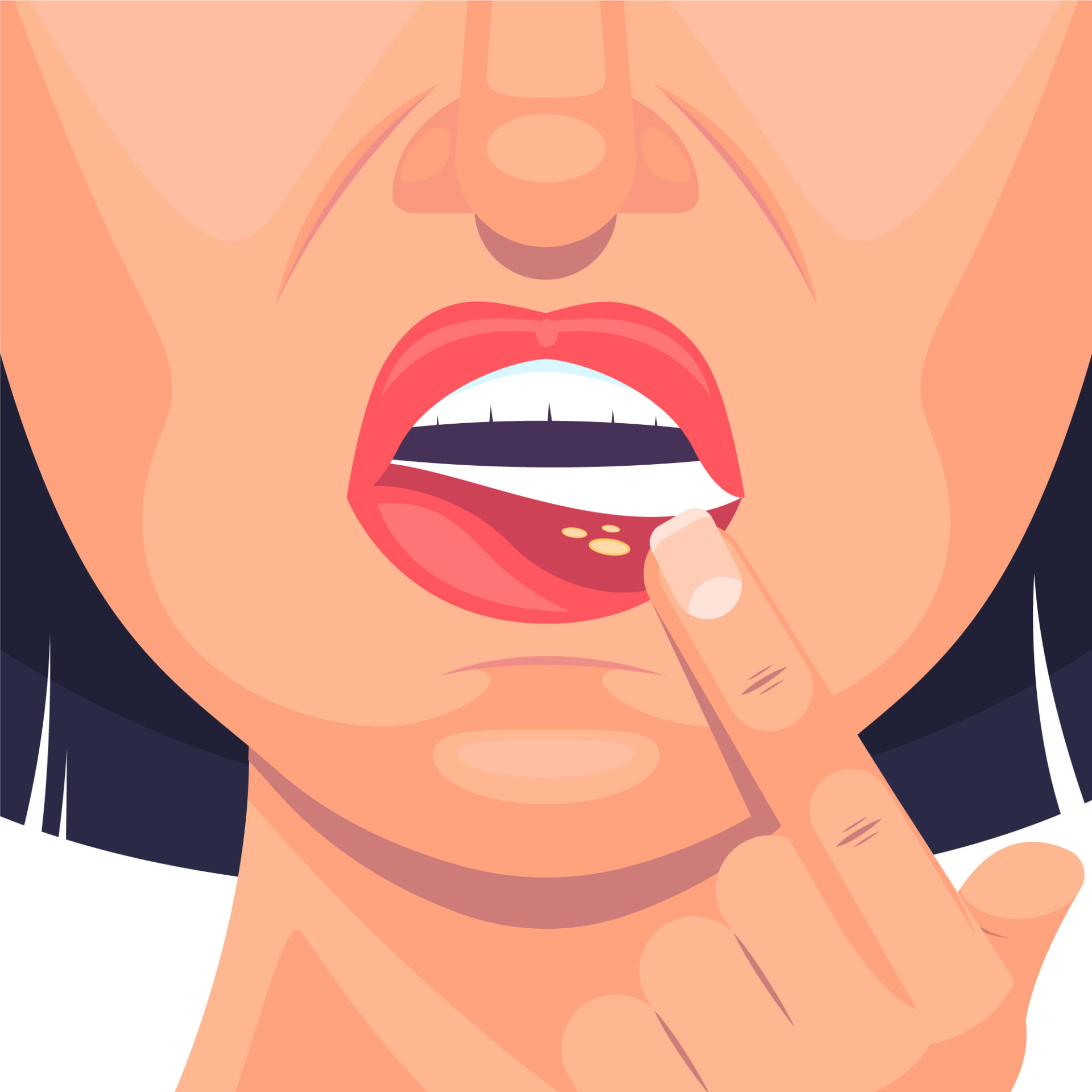How to Get Rid of Canker Sores: Fast Relief and Prevention Tips for a Pain-Free Mouth
Contents
- 1 How to Get Rid of Canker Sores: Fast Relief and Prevention Tips for a Pain-Free Mouth
- 1.0.0.0.0.1 Read DISCLAIMER
- 1.0.0.0.0.2 The material presented here is for general informational and educational purposes only and is not medical advice. Although we attempt to provide current and accurate information, this blog should not be used as a replacement for professional medical consultation, diagnosis, or treatment. In all cases, consult your physician or an accredited medical practitioner with regards to any medical condition or treatment. Do not ignore professional medical advice or wait for it on the basis of information provided by this blog. In a medical emergency, call emergency services immediately.
- 1.1 Understanding the Frustration of Canker Sores
- 1.2 What Exactly Are Canker Sores?
- 1.3 Why Do Canker Sores Appear?
- 1.4 Fast Relief Strategies: Calming the Pain
- 1.5 Nutrition and Canker Sores: The Hidden Connection
- 1.6 The Role of Stress and Sleep
- 1.7 Oral Hygiene and Gentle Care
- 1.8 Foods to Avoid While Healing
- 1.9 Can You Prevent Canker Sores?
- 1.10 When Should You Seek Medical Help?
- 1.11 Emotional Impact: More Than Just a Sore
- 1.12 Creating a Long-Term Plan for a Healthier Mouth
- 1.13 Final Thoughts
- 1.14 FAQs with Answers
Find out how to get rid of canker sores with fast relief and prevention tips. Learn natural remedies, healing strategies, and ways to stop recurring mouth ulcers.
Read DISCLAIMER
The material presented here is for general informational and educational purposes only and is not medical advice. Although we attempt to provide current and accurate information, this blog should not be used as a replacement for professional medical consultation, diagnosis, or treatment. In all cases, consult your physician or an accredited medical practitioner with regards to any medical condition or treatment. Do not ignore professional medical advice or wait for it on the basis of information provided by this blog. In a medical emergency, call emergency services immediately.
Understanding the Frustration of Canker Sores
Imagine sitting down to enjoy your favorite meal, only to be stopped by a sharp sting on the inside of your mouth. That tiny sore that seemed harmless yesterday has now turned eating, drinking, and even talking into a painful challenge. Most people have been there — dealing with a canker sore can feel like a constant reminder of discomfort, making you hyper-aware of every bite, sip, or smile.
Canker sores, also called aphthous ulcers, may be small, but their impact on daily life is significant. They can make you dread simple routines like brushing your teeth or enjoying a morning coffee. For many, the first instinct is to wonder why these sores appear in the first place and, more importantly, how to get rid of them quickly.
The good news is that with the right combination of fast relief techniques and preventive strategies, you can manage canker sores effectively while reducing the chances of recurring episodes.

What Exactly Are Canker Sores?
Canker sores are small, shallow ulcers that develop inside the mouth, typically on the inner cheeks, gums, tongue, or soft palate. Unlike cold sores, which appear outside the mouth and are caused by viruses, canker sores are not contagious. They are more like tiny wounds inside your mouth that become inflamed, tender, and irritating.
These sores often start as a slight burning or tingling sensation before a white or yellow ulcer with a red border forms. While most canker sores heal on their own within a week or two, the pain can feel unbearable in the meantime, especially when the sore rubs against food, teeth, or the tongue.
Why Do Canker Sores Appear?
The exact cause of canker sores remains a mystery, but multiple factors are thought to contribute. Stress, minor mouth injuries (like biting your cheek or irritation from braces), hormonal shifts, nutritional deficiencies, food sensitivities, and immune system responses all play a role.
For some, acidic or spicy foods trigger outbreaks, while others may notice flare-ups during periods of high emotional or physical stress. In certain cases, deficiencies in iron, folate, zinc, or vitamin B12 may contribute to frequent sores. Even toothpaste or mouthwash containing harsh chemicals like sodium lauryl sulfate can irritate sensitive tissue and increase the risk of sores.
Understanding your personal triggers is key to both finding relief and preventing future ulcers.

Fast Relief Strategies: Calming the Pain
When you’re dealing with the raw, throbbing sting of a canker sore, what you want most is immediate relief. While healing takes time, there are ways to ease the pain and help the sore heal faster.
Rinsing your mouth with warm saltwater can be surprisingly effective. Salt helps reduce swelling, cleans the area, and temporarily soothes discomfort. Some people find relief using a mild baking soda rinse, which balances acidity in the mouth and creates an environment less favorable for bacteria.
Applying protective pastes or soothing gels specifically designed for mouth ulcers can coat the sore, acting like a temporary shield against food, drinks, and saliva. This can significantly reduce irritation during meals.
Ice cubes are another simple yet powerful remedy. Allowing ice to slowly melt near the sore numbs the area, providing temporary comfort. Similarly, cool or chilled drinks may calm inflammation while avoiding acidic or spicy irritants.
In cases of severe pain, over-the-counter oral pain relievers can offer short-term relief, but natural methods are often gentler and equally effective when used consistently.
Nutrition and Canker Sores: The Hidden Connection
Your diet plays a much bigger role in mouth health than you might think. A lack of essential nutrients can weaken your body’s ability to repair tissue and defend against inflammation, making you more prone to canker sores.
If you notice frequent sores, it may be worth paying attention to your intake of vitamin B12, folic acid, zinc, and iron. These nutrients support cell regeneration, immune balance, and overall oral health. Adding foods rich in these elements — leafy greens, beans, nuts, seeds, fish, and lean meats — can strengthen your defenses.
Hydration is another underrated factor. A dry mouth environment can irritate tissues and slow down healing. Drinking adequate water throughout the day helps maintain a moist, balanced environment that promotes natural recovery.
The Role of Stress and Sleep
Have you ever noticed that canker sores seem to appear right when you’re most stressed or running on little sleep? This is not a coincidence. Stress weakens the immune system, while lack of rest prevents the body from repairing itself effectively.
Incorporating relaxation techniques such as deep breathing, meditation, or gentle stretching before bed can lower stress hormones and support healing. Making sleep a priority is equally important. A well-rested body is better equipped to fight inflammation and prevent recurrent ulcers.
Oral Hygiene and Gentle Care
Maintaining good oral hygiene is essential, but when you have a canker sore, brushing and rinsing can feel like torture. The goal is to keep your mouth clean without causing further irritation.
Using a soft-bristled toothbrush reduces the risk of aggravating the sore. Opting for alcohol-free mouthwash prevents additional stinging while still promoting a clean oral environment. If your toothpaste contains sodium lauryl sulfate, consider switching to a gentler formula to minimize sensitivity.
Small adjustments like these make a big difference in reducing daily discomfort while supporting faster healing.
Foods to Avoid While Healing
Certain foods act like fuel to the fire when you have a canker sore. Acidic fruits such as citrus or tomatoes, spicy seasonings, salty snacks, and crunchy or abrasive foods can all irritate the ulcer and slow recovery.
Alcoholic beverages and carbonated drinks can also sting, prolonging discomfort. Instead, soothing foods like yogurt, smoothies, or soft-cooked vegetables are gentler on your mouth and less likely to trigger pain.
This doesn’t mean you need to permanently give up your favorite spicy or tangy dishes, but avoiding them while a sore is healing helps the process move along more smoothly.
Can You Prevent Canker Sores?
While not every sore can be prevented, taking proactive steps significantly reduces their frequency and severity. Identifying and avoiding your personal triggers is the first step. If certain foods consistently lead to flare-ups, it’s worth limiting or replacing them with alternatives.
Supporting your immune system through balanced nutrition, hydration, stress management, and proper sleep is equally important. Wearing protective gear if you have braces or dental appliances can prevent friction-based sores. And practicing gentle oral hygiene creates a healthier environment overall.
Prevention is not about perfection but about stacking small, consistent habits that make your body less vulnerable to frequent outbreaks.
When Should You Seek Medical Help?
Most canker sores are harmless and heal on their own within one to two weeks. However, some situations warrant medical attention. If sores are unusually large, extremely painful, spreading, or lasting longer than three weeks, it’s wise to consult a professional.
Recurring ulcers that appear multiple times a year, or sores accompanied by fever, diarrhea, or fatigue, may indicate an underlying condition that requires treatment. A healthcare provider can help determine whether additional testing or targeted therapy is necessary.
Emotional Impact: More Than Just a Sore
It’s easy to underestimate the emotional toll of canker sores. They may seem minor, but anyone who has experienced them knows how much they affect daily life. The constant pain can make meals less enjoyable, lower confidence in social interactions, and even disrupt sleep.
Acknowledging this frustration is important. You are not overreacting by seeking solutions. Taking small, intentional steps toward relief and prevention is not only about healing the sore but also about reclaiming comfort, joy, and confidence in everyday moments.
Creating a Long-Term Plan for a Healthier Mouth
The journey with canker sores doesn’t end with temporary relief. The real transformation comes when you turn fast fixes into lasting habits. By nurturing your body with balanced nutrition, managing stress, prioritizing rest, and treating your mouth gently, you build resilience against future outbreaks.
Think of it as building an invisible shield — one made of lifestyle choices, mindful routines, and self-care practices that protect your oral health. While no one can guarantee you’ll never experience a canker sore again, you can significantly reduce their frequency and severity, making life much more comfortable.
Final Thoughts
Canker sores may be small, but their impact is anything but. They test your patience, challenge your routines, and remind you how delicate and interconnected the body truly is. Yet, they also offer an opportunity to slow down, care for yourself more deeply, and discover the simple habits that support both healing and prevention.
With the right blend of fast relief techniques and long-term strategies, you can move from frustration to freedom, enjoying meals, conversations, and smiles without the sting of discomfort. A pain-free mouth is possible — and it starts with paying attention to your body, honoring its needs, and giving it the care it deserves.
FAQs with Answers
- What are canker sores and how are they different from cold sores?
Canker sores are small ulcers inside the mouth that cause pain but are not contagious. Cold sores, on the other hand, appear outside the mouth and are caused by a viral infection. Understanding this distinction helps you manage them correctly. - What causes canker sores to form?
Canker sores can appear due to stress, minor mouth injuries, food sensitivities, vitamin deficiencies, or hormonal shifts. Triggers vary from person to person, so tracking when and why they appear is helpful for prevention. - How long do canker sores usually last?
Most canker sores heal on their own within one to two weeks. Small ones may clear faster, while larger or more severe sores can take longer. Relief strategies, however, can ease pain during healing. - Can you speed up the healing of a canker sore?
Yes. Rinsing with salt water, using soothing gels, staying hydrated, and avoiding irritating foods can help speed up recovery while reducing discomfort. Consistent care makes healing smoother. - Are canker sores contagious?
No, canker sores are not contagious. They result from irritation, nutritional imbalances, or immune reactions, not viral infections like cold sores. You cannot spread them through kissing or sharing utensils. - Which foods should I avoid when I have a canker sore?
Acidic, spicy, salty, or crunchy foods can irritate sores and delay healing. Gentle, soft foods such as yogurt, smoothies, or oatmeal are less painful to eat. - Do nutritional deficiencies play a role in canker sores?
Yes, deficiencies in vitamin B12, iron, folic acid, or zinc are linked to recurrent canker sores. Eating a nutrient-rich diet or considering supplements can reduce risk. - Can stress trigger canker sores?
Stress is a common trigger. Emotional or physical stress weakens immunity, making you more vulnerable to ulcers. Relaxation practices, mindfulness, and rest can help reduce outbreaks. - How can I relieve pain from a canker sore quickly?
Applying ice near the sore, using protective oral gels, rinsing with salt water, or drinking cool fluids can provide quick comfort by reducing irritation and swelling. - Do oral hygiene habits affect canker sores?
Yes. Using a soft toothbrush, alcohol-free mouthwash, and gentle toothpaste helps reduce irritation. Good hygiene keeps the mouth clean without worsening the sore. - Can dehydration make canker sores worse?
Yes, a dry mouth slows down healing and increases irritation. Staying hydrated helps maintain a moist environment that supports tissue repair and soothes pain. - Why do some people get frequent canker sores?
Frequent sores may stem from genetics, nutritional gaps, stress, or underlying conditions. Identifying triggers and making lifestyle changes often reduces recurrence. - When should I see a doctor about canker sores?
If sores are unusually large, last more than three weeks, recur often, or are accompanied by fever, fatigue, or swelling, professional medical evaluation is important. - Can canker sores be prevented?
While not all canker sores can be prevented, eating a nutrient-rich diet, managing stress, protecting the mouth from injury, and practicing gentle oral hygiene reduce their likelihood. - Are natural remedies effective for canker sores?
Yes, many people find relief with saltwater rinses, baking soda solutions, aloe vera, and honey. Natural remedies help soothe irritation and support the healing process without harsh chemicals.

It’s fascinating how easily we fall into patterns when gambling – chasing losses is so common! Seeing platforms like fair play login app emphasize security & responsible play is a good sign, especially with quick deposit options like GCash. It’s about enjoying the fun, right?
Abdurrahmangazi su kaçak tespiti Su tesisatındaki kaçağı tespit etmek için kullandıkları teknoloji çok etkileyiciydi. Sorunun yerini milimetrik olarak belirlediler.Ayten P. https://suksesvol.org/read-blog/13327
Alright, listen up! Checking out jiliwinbet. The interface looks slick. Anyone having any luck with this site? Spill the beans on your strategies!
Is luck55game where the party’s at? Someone hook me up with the real deal info, maybe here: luck55game
Hey all, anyone checking out gà chọi c1.com trực tiếp? Let me know what you think! Always on the lookout for the best places to watch.
Nhóm 5: Tổng hợp & Kêu gọi hành động (CTA) (20 đoạn) TONY01-06H